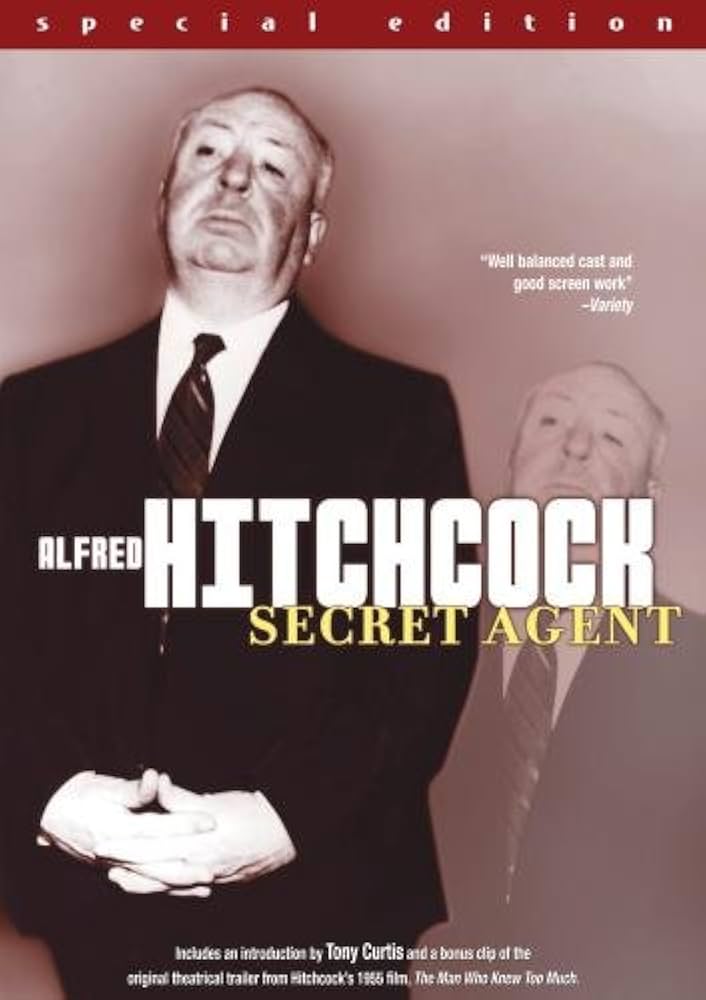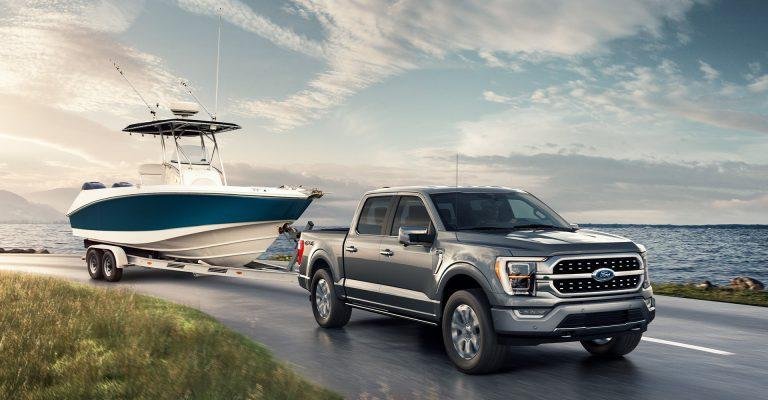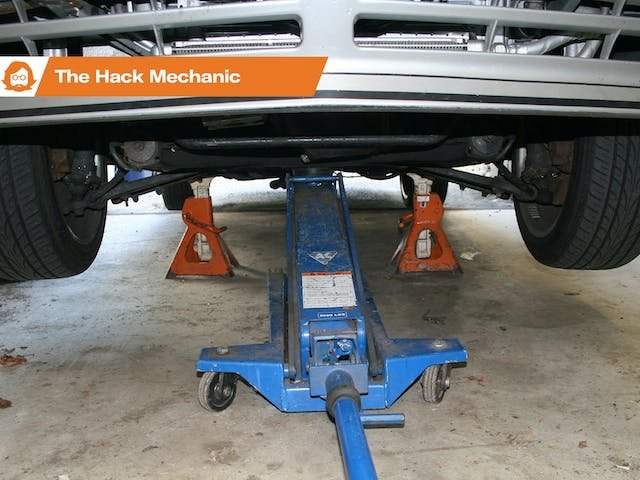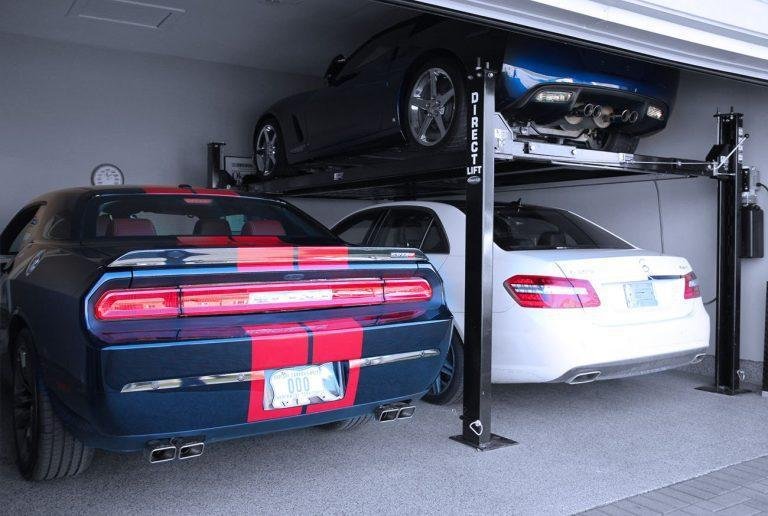Trailer hitch cost varies but generally ranges from $50 to $800, depending on the type and quality. Trailer hitches provide a safe and convenient way to tow trailers, rvs, and other heavy loads behind vehicles.
They come in different types such as receiver hitches, gooseneck hitches, and fifth-wheel hitches, each designed for specific towing needs. The cost depends on factors like the towing capacity, material, brand, and additional features like anti-sway technology or built-in wiring.
It is important to consider the vehicle’s towing capacity and the weight of the load when choosing a trailer hitch. Additionally, professional installation may be needed, which could add to the overall cost. Considering these factors will help you find the right trailer hitch that fits your budget and towing requirements.

Credit: www.amazon.com
Factors Affecting Trailer Hitch Pricing
Trailer hitch pricing is influenced by several factors, such as the type of hitch, its towing capacity, and the brand. Costs can range from $100 to over $500 for installation and equipment, depending on these variables.
A trailer hitch is an essential component for towing trailers of various sizes and types. When it comes to the cost of a trailer hitch, several factors influence the price. Understanding these factors is crucial to make an informed decision when purchasing one.
Let’s take a closer look at the key factors that affect trailer hitch pricing:
Weight Class And Towing Capacity:
- Weight class and towing capacity are significant considerations that impact the cost of a trailer hitch.
- There are different weight classes of trailer hitches available, ranging from class 1 to class 5.
- Each weight class has a specific towing capacity, determining how much weight the hitch can safely tow.
- A higher weight class and towing capacity generally result in a higher price for the trailer hitch.
Hitch Type (Bumper Mount, Gooseneck, Fifth Wheel, Etc.):
- The type of trailer hitch, such as bumper mount, gooseneck, fifth wheel, or others, influences the price.
- Each hitch type is designed for specific towing needs, from light-duty to heavy-duty applications.
- More specialized hitch types, like gooseneck or fifth wheel hitches designed for larger trailers, often come with a higher price tag due to their unique features and capabilities.
Material And Construction Quality:
- The material and construction quality of the trailer hitch also play a role in determining its price.
- Hitches made from high-quality materials like steel or aluminum tend to be more durable and long-lasting.
- Superior construction, such as precision welding or corrosion-resistant coatings, can add to the cost but ensures better performance and longevity.
Overall, The Cost Of A Trailer Hitch Is Influenced By Factors Such As Weight Class And Towing Capacity, Hitch Type, And Material And Construction Quality. It’S Important To Consider Your Specific Towing Needs And Budget When Choosing A Trailer Hitch. Keep In Mind That Investing In A Reliable And Sturdy Trailer Hitch Can Provide You With Safe And Reliable Towing Experiences For Years To Come.
Exploring Different Types Of Trailer Hitches And Their Costs
Discover the diverse range of trailer hitches available and explore their costs, providing an insight into how much you can expect to pay for these essential towing accessories.
When it comes to towing, having the right trailer hitch is essential. But with so many options available, it can be daunting to figure out which one is best for your needs. We will explore different types of trailer hitches and their costs, giving you a better understanding of what’s available in the market.
Bumper Mount Hitches:
- Bumper mount hitches are the most basic type of trailer hitch and are typically designed for lighter towing needs.
- They are attached directly to the bumper of the vehicle, providing a simple and inexpensive towing solution.
- Bumper mount hitches usually cost between $20 to $100, depending on the weight capacity and quality.
Receiver Hitches:
- Receiver hitches are one of the most common types of trailer hitches and offer a versatile towing option.
- They feature a receiver tube that is mounted to the rear of the vehicle and can accommodate different types of hitch accessories.
- Receiver hitches come in various classes, each with different weight capacities and price ranges.
Class 1 And Class 2 Hitches:
- Class 1 hitches are designed for lighter loads, such as small trailers or bike racks. They usually have a towing capacity of up to 2,000 pounds.
- Class 2 hitches are slightly more robust and can handle towing loads of up to 3,500 pounds.
- The cost of class 1 and class 2 hitches typically ranges from $50 to $200, depending on the brand and quality.
Class 3 And Class 4 Hitches:
- Class 3 hitches are a step up from the previous classes and are capable of towing larger trailers, boats, or rvs. They can handle up to 6,000 pounds.
- Class 4 hitches are even stronger and can tow up to 10,000 pounds, making them suitable for heavy-duty towing needs.
- The cost of class 3 and class 4 hitches varies between $100 to $500, depending on the weight capacity and brand.
Class 5 Hitches:
- Class 5 hitches are heavy-duty hitches designed for commercial and industrial applications.
- They offer the highest weight capacity, with some models able to tow up to 20,000 pounds or more.
- Class 5 hitches tend to be more expensive, ranging from $200 to $800 or more, depending on the specific requirements.
Gooseneck Hitches:
- Gooseneck hitches are ideal for towing large trailers or livestock carriers.
- They feature a hitch ball mounted in the bed of the truck, providing increased stability and weight distribution.
- The cost of gooseneck hitches falls in the range of $300 to $1,500, depending on the weight capacity and brand.
Fifth Wheel Hitches:
- Fifth wheel hitches are commonly used for towing large rvs or horse trailers.
- They are attached to the bed of the truck, right above the rear axle, offering superior towing stability.
- The cost of fifth wheel hitches usually starts around $400 and can go up to $2,000 or more, depending on the weight capacity and brand.
By understanding the different types of trailer hitches available and their respective costs, you can make an informed decision. Remember to consider your towing needs, vehicle specifications, and budget when selecting the right trailer hitch for your purposes.
Understanding The Price Range For Trailer Hitches
Trailer hitch prices vary based on factors like brand, type, and capacity. Costs can range from $50 for basic models to over $500 for heavy-duty hitches with advanced features. A thorough understanding of the price range helps consumers make informed decisions when purchasing a trailer hitch.
Trailer hitches are essential accessories for towing, providing the necessary connection between your vehicle and trailer. When considering a trailer hitch, understanding the price range is crucial in selecting the right option for your towing needs. Whether you require a hitch for light, moderate, or heavy-duty towing, there are various price points available to suit every budget.
Let’s break down the different categories of trailer hitches and their corresponding price ranges:
Entry-Level Hitches: Budget-Friendly Options For Light Towing Needs
- These hitches are designed for individuals who have occasional towing requirements or need to transport lighter loads.
- Typically made from durable materials such as steel or aluminum.
- Easy to install and remove, offering convenience and flexibility.
- Price range: $50 – $200, depending on the brand, towing capacity, and features.
Mid-Range Hitches: Reliable Options For Moderate Towing Requirements
- Suitable for individuals who tow more frequently or need to transport moderately heavy loads.
- These hitches provide increased towing capacity and strength compared to entry-level options.
- Constructed with high-quality materials for added durability and longevity.
- Price range: $200 – $500, depending on the brand, towing capacity, and additional features.
High-End Hitches: Premium Hitches For Heavy-Duty Towing Demands
- Designed for individuals who require maximum towing capacity and durability for heavy loads or professional purposes.
- These hitches are built to withstand demanding towing conditions and offer superior strength.
- Made from top-quality materials, such as stainless steel or heavy-duty alloys, ensuring long-lasting performance.
- Price range: $500 and above, depending on the brand, towing capacity, and advanced features.
Understanding the price ranges for trailer hitches allows you to make an informed decision based on your specific towing requirements and budget. Whether you prioritize affordability, reliability, or top-of-the-line performance, there is a trailer hitch available for you. Consider the weight capacity, build quality, and additional features when selecting a hitch to ensure seamless and safe towing experiences.
Remember, investing in a quality trailer hitch will provide peace of mind and help make your towing journeys a breeze.
Additional Costs To Consider When Buying A Trailer Hitch
When purchasing a trailer hitch, it’s important to consider the additional costs that may arise. Along with the price of the hitch itself, you may need to budget for installation, wiring, and possible modifications to your vehicle.
When purchasing a trailer hitch, it’s essential to take into account the additional costs involved. These costs can vary depending on the type of hitch, vehicle compatibility, and individual preferences. Here are some important considerations to keep in mind:
Installation Fees:
- Some trailer hitches require professional installation due to their complexity or specific vehicle requirements. Hiring a professional to install the hitch ensures proper installation and guarantees safety.
- Installation fees typically range from $100 to $500, depending on the make and model of the vehicle and the difficulty of the installation process.
- While some vehicle owners with mechanical expertise may opt for a diy installation, it’s crucial to accurately follow the manufacturer’s instructions to prevent any damage or risks.
Wiring And Electrical Components:
- For trailers that require electrical connections, additional wiring and electrical components may be necessary.
- Wiring harnesses, connectors, and converters are commonly required to provide power for trailer lights, brakes, and other electrical systems.
- The cost of wiring and electrical components can range from $50 to $200, depending on the specific requirements of your trailer and vehicle.
Accessories And Add-Ons:
- Depending on your towing needs, various accessories and add-ons may be required or desired.
- Trailer hitch accessories such as ball mounts, couplers, safety chains, and locks are essential for safe towing and can range from $20 to $100 each.
- Other add-ons like hitch covers, brake controllers, weight distribution systems, and sway control devices can enhance the towing experience, but they will incur additional costs.
Maintenance And Repair Costs:
- After purchasing a trailer hitch, it’s crucial to keep it well-maintained to ensure longevity and optimal performance.
- Regular maintenance tasks such as lubricating moving parts, inspecting for rust or damage, and tightening bolts may be necessary.
- In the event of damage or wear, repair costs may arise, depending on the severity of the issue. Professional repair services can range from $50 to $200 or more.
- It’s important to factor in these ongoing maintenance and repair costs to keep your trailer hitch in top condition and avoid any unexpected issues.
Remember, the specific costs mentioned here are approximate and can vary depending on various factors such as the type of vehicle, hitch, and accessories chosen. It’s always advisable to consult with professionals and do thorough research to determine the most accurate costs relevant to your specific needs.
Tips For Saving Money On Trailer Hitch Purchase
Looking to save money on a trailer hitch purchase? Discover tips and tricks for finding the best deals and getting the most bang for your buck. Explore the various factors that affect the cost of a trailer hitch and how you can make a smart and budget-friendly choice.
If you’re in the market for a trailer hitch, you may be wondering how much it will cost. Well, the price of a trailer hitch can vary depending on several factors such as the type of hitch, the make and model of your vehicle, and where you purchase it from.
But fear not, we’ve got you covered with some tips on how to save money on your trailer hitch purchase. Check out the following suggestions:
Compare Prices From Different Manufacturers And Retailers:
- Do your research and compare prices from various manufacturers and retailers. Look for reputable brands that offer quality trailer hitches at competitive prices.
- Take advantage of the internet by visiting different online stores and comparing prices. Some websites even provide price comparison tools to help you find the best deal.
- Don’t forget to consider shipping costs when comparing prices. A slightly higher price from a local retailer may still be a better deal when you factor in the shipping fees.
Look For Sales, Discounts, And Promotions:
- Keep an eye out for sales, discounts, and promotions offered by manufacturers or retailers. These can help you save a significant amount of money.
- Subscribe to newsletters or follow the social media accounts of trailer hitch manufacturers and retailers to stay updated on any ongoing or upcoming sales.
- Consider shopping during holiday seasons or special events like black friday, cyber monday, or independence day, as you’re more likely to find great deals during these times.
Consider Buying Used Trailer Hitches:
- If you’re looking to save even more money, consider buying a used trailer hitch. Look for reputable sellers or platforms that specialize in selling used auto parts.
- Make sure to carefully inspect the used hitch for any signs of wear or damage before making your purchase. You don’t want to compromise safety for the sake of saving money.
- Additionally, buying used can be environmentally friendly as it reduces waste by giving a second life to a perfectly functional trailer hitch.
Negotiate Installation Fees With Professional Installers:
- Once you’ve purchased your new or used trailer hitch, you’ll need to have it installed. Professional installers may charge a fee for their services, but you can try to negotiate the price.
- Reach out to different installers and ask for quotes. Compare the prices and don’t hesitate to negotiate for a lower fee.
- Be sure to choose a qualified and experienced installer who will ensure proper installation, as safety should always be a priority when it comes to towing.
By following these tips, you can save money on your trailer hitch purchase without compromising quality or safety. Remember, research and patience are key when it comes to finding the best deals. Happy towing!
Diy Installation Vs. Professional Installation: Pros And Cons
Diy installation and professional installation both have their pros and cons when it comes to trailer hitch costs. While diy may save money, professional installation guarantees expertise and warranty. Consider budget, skill level, and preference before making a decision.
Are you considering installing a trailer hitch on your vehicle? One of the decisions you’ll need to make is whether to tackle the installation yourself or hire a professional. Both options come with their own set of benefits and advantages.
Let’s explore the pros and cons of diy installation and professional installation to help you make an informed decision.
Benefits Of Diy Installation
Installing a trailer hitch on your own carries several advantages, including:
- Cost savings: Diy installation eliminates the need for labor fees, resulting in significant cost savings compared to hiring a professional.
- Flexibility: By choosing to install the trailer hitch yourself, you have more control over the process and can work at your own pace.
- Learning experience: Taking on the installation as a diy project allows you to learn new skills and gain knowledge about your vehicle.
Advantages Of Professional Installation
While going the diy route can be rewarding, there are also notable advantages to opting for professional installation:
- Expertise and experience: Professionals possess the knowledge and experience required to install trailer hitches correctly, ensuring safety and reliability.
- Time-saving: Hiring a professional saves you time and effort, as they have the necessary tools and expertise to complete the installation quickly and efficiently.
- Warranty and guarantees: Many professionals offer warranties or guarantees on their workmanship, giving you peace of mind in case any issues arise.
Factors To Consider When Deciding
When deciding between diy installation and professional installation, consider the following factors:
- Skill level and experience: Are you confident in your abilities to undertake a mechanical project? Assess your skill level honestly before making a decision.
- Time and availability: Do you have sufficient time available to complete the installation? Keep in mind that diy installation may take longer if you’re unfamiliar with the process.
- Vehicle warranty: Determine whether installing the trailer hitch yourself could potentially void any warranties on your vehicle.
- Complexity of installation: Research the specific requirements and difficulty level of installing a trailer hitch on your particular make and model of vehicle.
Choosing between diy installation and professional installation boils down to your personal preferences, skill level, and available resources. Diy installation offers cost savings, flexibility, and a learning experience, while professional installation provides expertise, time-saving convenience, and additional assurances. Consider factors such as skill level, time availability, vehicle warranty, and complexity when making your decision.
Common Mistakes To Avoid When Buying A Trailer Hitch
When purchasing a trailer hitch, it is important to avoid common mistakes that can lead to costly errors. By understanding the cost of a trailer hitch and avoiding common pitfalls, you can make a confident and informed decision.
Neglecting to consider towing capacity and weight limits:
- Failing to determine your vehicle’s towing capacity can lead to purchasing an incompatible trailer hitch. Be sure to check your vehicle’s manufacturer guidelines before making a decision.
- Ignoring weight limits can result in overloading the hitch and compromising safety. Consider the weight of your trailer and its contents to ensure it aligns with the hitch’s capacity.
Ignoring the importance of proper installation and setup:
- Improper installation can lead to a variety of issues, such as reduced towing stability and potential damage to your vehicle. Seek professional installation or carefully follow the manufacturer’s instructions for a secure and safe setup.
- Pay attention to the height and angle of your hitch installation to ensure level towing and proper weight distribution. This will help prevent excessive strain on your vehicle and improve towing performance.
Choosing the wrong hitch type for your towing needs:
- Trailer hitches come in various types, including receiver hitches, gooseneck hitches, and fifth-wheel hitches. Selecting the wrong type can result in limited towing capabilities or even incompatibility with your trailer.
- Consider factors such as the size and weight of your trailer, the type of towing you will be doing, and any specific requirements or restrictions you may have. This will enable you to choose the appropriate hitch type for your specific towing needs.
Remember, investing in the right trailer hitch is essential for a safe and successful towing experience. Avoid these common mistakes to ensure compatibility, proper installation, and optimal performance. By doing so, you’ll enjoy peace of mind knowing your trailer hitch will meet your towing requirements and keep you safe on the road.
Frequently Asked Questions Of How Much Does A Trailer Hitch Cost?
Can I Install My Own Trailer Hitch?
Yes, you can install your own trailer hitch. It’s a simple process and doesn’t require any professional help. Start by gathering the necessary tools and equipment. Next, refer to the installation instructions provided by the hitch manufacturer. These instructions will guide you through the step-by-step process.
Ensure that you have a proper understanding of the instructions before beginning the installation. Begin by removing any existing components that may interfere with the hitch installation. Then, position the hitch in place and secure it using the provided hardware.
Tighten all bolts and ensure they are properly secured. Finally, test the hitch to ensure it is securely installed. Always follow the specific instructions provided by the manufacturer to ensure a safe and successful installation.
Is It Worth It To Install Trailer Hitch?
Yes, installing a trailer hitch is worth it if you frequently use trailers. A trailer hitch allows you to easily tow trailers, rvs, or other equipment. It provides a secure connection between your vehicle and the trailer, ensuring safe and efficient towing.
Moreover, it increases the versatility and functionality of your vehicle. Whether you need to transport camping gear, furniture, or bikes, a trailer hitch makes it possible. Additionally, it can save you money by allowing you to rent or borrow trailers instead of hiring moving services.
It’s important to choose the right trailer hitch for your vehicle and ensure it is installed correctly for optimal performance and safety. Overall, if you require the ability to tow trailers, installing a trailer hitch is definitely worth it.
What Is The Difference Between A Tow Hitch And A Trailer Hitch?
A tow hitch and a trailer hitch are the same thing. They are devices used to connect a tow vehicle and a trailer.
What Size Hitch Do I Need To Pull A Trailer?
To determine the size of the hitch you need to pull a trailer, you should consider the weight of the trailer and the towing capacity of your vehicle. The hitch size is typically measured in terms of receiver opening, such as 1 1/4 inches or 2 inches.
For smaller trailers, a 1 1/4-inch hitch should suffice, while larger trailers may require a 2-inch hitch. It is essential to match the hitch size to your vehicle’s towing capacity to ensure safe and efficient towing. To find the right hitch size, consult your vehicle’s manual or reach out to a trusted professional in towing equipment.
Remember to consider factors like tongue weight and trailer brakes for a well-balanced and secure towing experience.
Conclusion
Trailer hitches are an essential accessory for towing purposes, but determining their cost can be a daunting task. The price of a trailer hitch depends on various factors such as the type of hitch, brand, and installation requirements. However, it is crucial to remember that quality and reliability should take precedence over cost.
While cheaper options may seem tempting, investing in a sturdy and well-built trailer hitch will ensure your safety and longevity. Conduct thorough research and compare prices from different sources to find the best deal while not compromising on quality. Additionally, consider consulting experts or trusted professionals who can provide guidance based on your towing needs.
Ultimately, understanding the cost factors and making an informed decision will help you find a trailer hitch that fits your budget while giving you peace of mind on the road.





